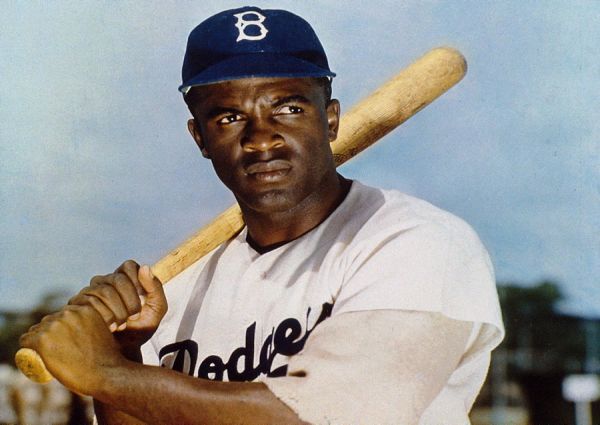Newcombe was the first Black Cy Young Award winner, 20-game winner, and All-Star in MLB history.
Brooklyn Dodgers legendary pitcher, Don Newcombe died Tuesday morning at the age of 92 after losing a battle with an undisclosed illness, the LA Dodgers confirmed.
Don Newcombe, a legendary pitcher for the Brooklyn #Dodgers – who won both the Cy Young and MVP in 1956 has died at 92. Played with the Newark Eagles in the Negro Leagues. One of the few photos I could find of him in an Eagles uniform. pic.twitter.com/YRsgQL2f4t
— Nick Diunte (@ExamineBaseball) February 19, 2019
Newcombe was one of the most important African-American figures in sports history.
The fastball-hurling, gritty right-hander was the third African-American pitcher to appear in a major-league game and became the first Black Cy Young Award in 1956 when he went 27-7 for the Dodgers, following a two-year layoff in 1952-53 for military service.
Along with Jackie Robinson, Roy Campanella, and Larry Doby, Newcome was also among the first 4 black players to make the All-Star game.
“Don Newcombe’s presence and life established him as a role model for major leaguers across the country,” Dodgers president Stan Kasten said in a statement released by the team. “He was a constant presence at Dodger Stadium and players always gravitated to him for his endless advice and leadership. The Dodgers meant everything to him and we are all fortunate he was a part of our lives.”
In MLB, the pitcher position is akin to the quarterback position in football and blacks attempting to pitch professionally have been subject to all of the bigotry, and false narratives over the years to keep Blacks from off the mound.
RIP Don Newcombe, Negro League star with Newark Eagles, who became an ace w #Brooklyn @Dodgers. He was NL Rookie of Year in 1949 & was named NL MVP & @MLB Cy Young Award winner in '56 with a 27-7 record. Here's Newk's @sabr bio https://t.co/HuouDEkZD8 pic.twitter.com/avggQUJIWo
— SABR BioProject (@SABRbioproject) February 19, 2019
Black pitchers have been baseball’s endangered species ever since the game was segregated by Jackie Robinson in 1947. As the numbers of African-Americans in baseball rise again, black pitchers remain almost nonexistent. Newcombe broke into the league two years after Robinson in 1949. The climate around Black players participating in MLB was still very tense and many white players and fans were still very resistant to the notion.
Newcombe had an even rougher time than Robinson according to some historians because he was a pitcher and it was considered a white man’s position. Players, fans and at times, umpires had a strong disdain for Newcombe.
In addition to the hate mail and death threats, the Black players on the Dodgers couldn’t stay at some of the same Southern hotels as their white teammates. It was a demoralizing, sobering and angering experience.
April 8, 1952: @Dodgers greats (L-R): Roy Campanella, Don Newcombe, and Jackie Robinson take the field prior to an exhibition game versus the Boston Braves in Richmond, Virginia.
Newcombe has just joined the U.S. Army and was stationed at nearby Camp Pickett, Virginia. #RIPNewk pic.twitter.com/81vFuWwRod
— Alex Cheremeteff (@AlexCheremeteff) February 19, 2019
“All we wanted to be was red-blooded Americans like everybody else,” Newcombe once told Yankees announcer Healy.
As a rookie, “The Black Ace” pitched 32 consecutive scoreless innings and won the National League Rookie of the Year award.
Reflecting on the year of 1949, Newcombe told legendary African-American radio and sports pioneer Art Rust, Jr. in his book, Get That Nigger Off the Field, “I was the first black pitcher ever to take the mound in a Major League World Series game. At the time I remember I had a double set of feelings: a modicum of fear about the Yankee dynasty we were playing and that I was only a rookie.”
The conditions Newcombe had to pitch under were nightmarish at times. The threats, verbal attacks, and bigotry compounded an alcohol problem that Newcombe had since his youth. It probably forced him to retire earlier than he should have, but he did so with a 149-90 record in 10 MLB seasons.
Tommy Lasorda on Newk: “Don Newcombe had a ton of talent and he was a great competitor. He was a helluva pitcher and he was one of the best hitting pitchers I have ever seen.”
— Dodger Insider (@DodgerInsider) February 19, 2019
After Newcombe was able to fight off his demons and get clean, in the 1970s he started speaking at high school assemblies about the dangers of alcohol abuse and the nightmares he experienced, eventually becoming a consultant for the National Clearinghouse for Alcohol Information and a member of the advisory board of the National Council on Alcoholism.
In his later years, he was a highly-respected icon, a living link to the Brooklyn Dodgers’ golden roots and part of a dwindling contingent of living players who once played in the Negro Leagues.
He was an elite ambassador for the sport and his contributions to the advancements of Black pitchers is often undervalued in MLB history.
While Robinson receives the mythical props for breaking the color barrier with Branch Rickey, Newcombe was also a pioneer and a pivotal one in the battle for racial equality in the sport.



